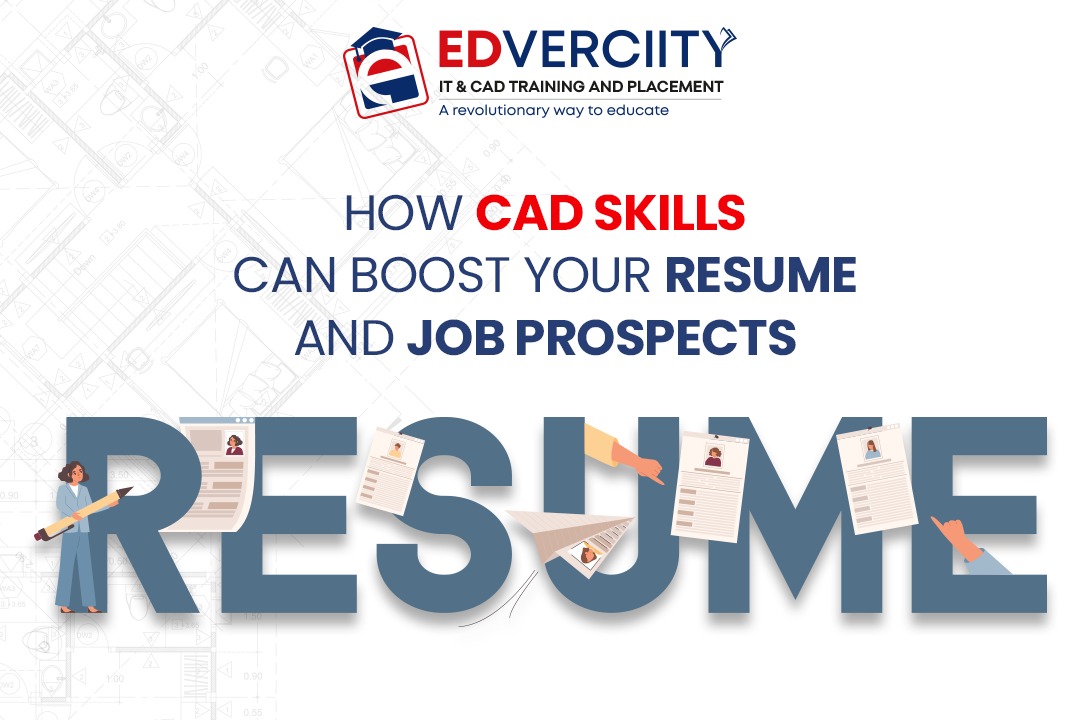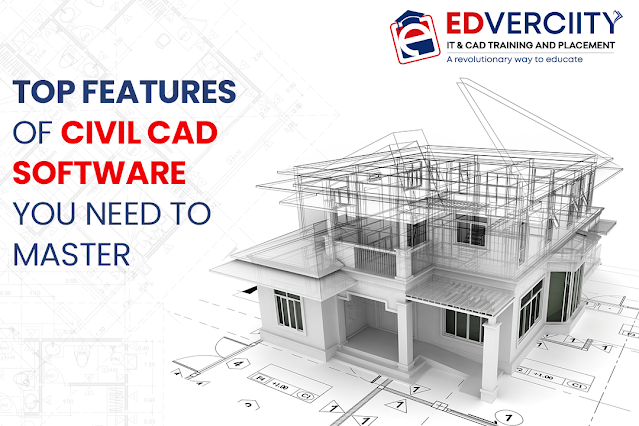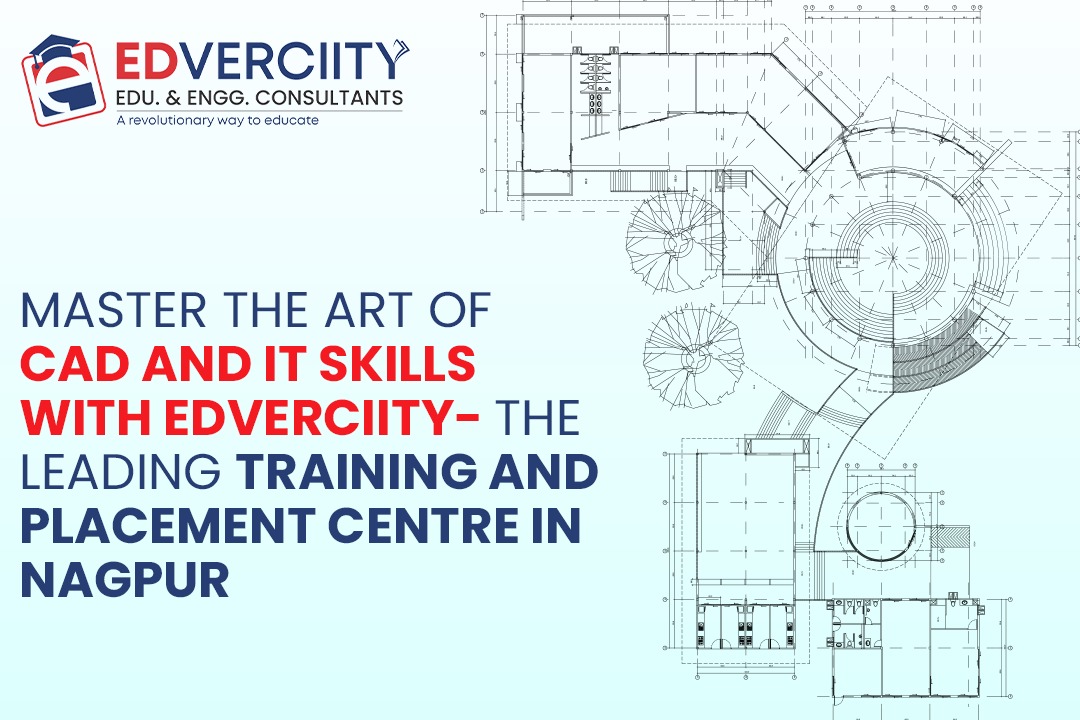In today’s competitive job market, possessing specialized skills can significantly enhance your career prospects. One such in-demand skill is Computer-Aided Design (CAD). CAD expertise is not only essential in engineering and design fields but also holds value across industries like architecture, manufacturing, and even healthcare. Here’s how CAD skills can elevate your resume and open doors to better job opportunities.
What is CAD?
CAD refers to the use of computer software to create precise drawings, 3D models, and technical designs. It replaces traditional drafting methods, offering greater accuracy, efficiency, and flexibility. Popular CAD software includes AutoCAD, SolidWorks, CATIA, and Revit.
Edverciity has been a leading provider of specialized training in BIM, CAD, CAM, CAE, PLM, and Project Management since 2014.
Why Are CAD Skills in High Demand?
- Industry Relevance: CAD is widely used in industries like construction, automotive, aerospace, and electronics.
- Technological Integration: As industries adopt advanced technologies like 3D printing and automation, CAD skills are becoming a must-have.
- Precision and Efficiency: Employers seek candidates who can deliver accurate designs and improve productivity.
Benefits of Adding CAD Skills to Your Resume
1. Enhanced Employability
- Stand Out: Proficiency in CAD tools distinguishes you from other candidates in fields like engineering, design, and architecture.
- Increased Opportunities: Many roles, such as design engineer, architectural drafter, or product designer, require CAD skills.
2. Diverse Career Paths
- CAD skills aren’t limited to engineering. Fields like interior design, fashion, and even medical device manufacturing utilize CAD software.
- Whether you’re planning a career in construction or industrial design, CAD expertise opens up a variety of options.
3. Higher Salary Potential
- CAD professionals are often offered competitive salaries due to the technical expertise they bring to the table.
- Advanced CAD skills, such as parametric modeling and 3D rendering, can further increase earning potential.
4. Global Opportunities
- CAD skills are recognized and valued worldwide, making it easier to work with international clients or seek overseas employment.
5. Contribution to Innovation
- Companies value employees who can contribute to innovation by creating prototypes, optimizing designs, and solving complex challenges using CAD tools.Unlock your potential with Edverciity Nagpur, the hub for advanced CAD, CAM, and CAE training. ???? Transform your career with industry-focused courses designed for success!"
How to Learn CAD Skills
1. Enroll in CAD Training Programs
- Join a reputable CAD training institute offering courses in software like AutoCAD, SolidWorks, or CATIA.
- Look for certifications that are industry-recognized, as these add credibility to your resume.
2. Take Online Courses
- Platforms like Udemy, Coursera, and LinkedIn Learning provide affordable and flexible learning options.
- Many courses offer practical assignments to build hands-on expertise.
3. Gain Hands-On Experience
- Practice designing real-world projects to build your portfolio.
- Use free or trial versions of CAD software to develop your skills.
4. Participate in Internships
- Internships in relevant industries provide invaluable practical experience and help you understand CAD applications in real-world scenarios
How to Highlight CAD Skills on Your Resume
- Include Specific Software Proficiency: Mention the CAD tools you are proficient in, such as AutoCAD, SketchUp, or Revit.
- Showcase Relevant Projects: Highlight design projects or internships where you used CAD software.
- Certifications: Include certifications to validate your expertise.
- Key Skills Section: Add terms like “3D Modeling,” “Technical Drafting,” or “Parametric Design.”
Industries That Value CAD Skills
- Engineering: Mechanical, civil, and electrical engineers rely on CAD for design and analysis.
- Architecture: Architects use CAD for creating blueprints and 3D visualizations of buildings.
- Manufacturing: CAD is vital for product design, prototyping, and CNC machining.
- Healthcare: CAD aids in designing medical devices and prosthetics.
- Automotive and Aerospace: Used extensively for designing components and assemblies.
CAD skills are a gateway to a promising career, offering versatility and relevance across industries. Whether you’re a recent graduate or a professional looking to upskill, learning CAD can significantly boost your resume and job prospects. Start today, and unlock a world of career opportunities!
Phone Number: 7507111164 / 7507111145
Email Address: info@edverciity.com
Referral Blog Links
https://edverciity.com/blog/how-to-choose-the-right-solidworks-course-for-your-career-goals















